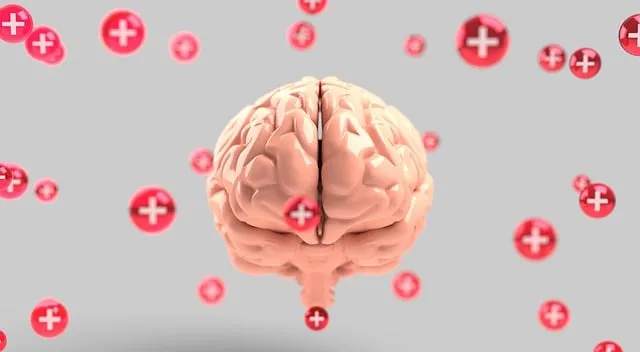Social skills training is a vital component of managing mental health conditions, addressing the strong link between social interaction and overall well-being. Organizations like Kaiser Permanente in Lone Tree offer support through their mental health phone services, providing resources for improvement. Trauma Support Services focusing on mindfulness meditation and resilience-building exercises have proven effective in enhancing social skills, emotional regulation, and comfort in social situations. Combining these approaches helps individuals connect with others, fostering good mental health and supportive communities, while strategies like active listening and journaling can be learned through professional guidance from services like the Kaiser Permanente mental health phone number in Lone Tree.
Social skills training is a powerful tool for managing mental health conditions. This comprehensive guide explores the vital connection between social interactions and mental well-being, focusing on challenges faced by those with mental health issues. We delve into how structured training can enhance treatment plans and offer practical strategies to improve social abilities. Discover resources like the Kaiser Permanente mental health phone number in Lone Tree for support and guidance tailored to your needs.
- Understanding the Link Between Social Skills and Mental Health
- Identifying Challenges in Social Interactions for Individuals with Mental Health Conditions
- The Role of Social Skills Training in Treatment Plans
- Practical Strategies for Improving Social Abilities
- Resources and Support: Kaiser Permanente Mental Health Phone Number Lone Tree
Understanding the Link Between Social Skills and Mental Health

Social skills training plays a pivotal role in managing mental health conditions, as there’s a profound connection between one’s ability to interact and overall well-being. Many individuals struggling with mental health issues often face challenges in social settings due to symptoms like anxiety, depression, or post-traumatic stress disorder (PTSD). These conditions can make simple social interactions feel overwhelming, leading to isolation and further exacerbating the individual’s condition. Understanding this link is crucial for developing effective support systems, such as those offered by organizations like Kaiser Permanente, which may provide mental health resources through their phone services in Lone Tree or other locations.
Trauma Support Services, including mindfulness meditation and resilience-building exercises, have proven to be valuable tools in improving social skills. Mindfulness practices help individuals regulate emotions and reduce the impact of traumatic memories, enabling them to engage more comfortably in social situations. Resilience-building techniques equip people with coping strategies to navigate social challenges, fostering a sense of self-efficacy. By combining these approaches, individuals can enhance their ability to connect with others, which is essential for maintaining good mental health and building supportive communities.
Identifying Challenges in Social Interactions for Individuals with Mental Health Conditions

Individuals with mental health conditions often face unique challenges when it comes to social interactions. These challenges can range from difficulty in initiating conversations to struggles with maintaining eye contact or interpreting social cues, which are all essential aspects of effective communication. According to a study conducted by Kaiser Permanente (Lone Tree), many people living with mental health issues, such as depression or anxiety, may isolate themselves due to these social barriers, leading to further feelings of loneliness and withdrawal.
The process of engaging in social skills training is crucial for enhancing these interactions. Mental health professionals can play a vital role in this journey by providing guidance on various strategies. For instance, they might suggest practicing active listening, learning non-verbal communication cues, or even recommending mental wellness journaling exercises to track progress and improve self-awareness. Through these interventions, individuals can develop the confidence to navigate social situations more comfortably, thereby improving their overall mental health awareness and quality of life.
The Role of Social Skills Training in Treatment Plans

Social Skills Training (SST) plays a pivotal role in comprehensive treatment plans for individuals managing mental health conditions. Often, those dealing with depression, anxiety disorders, or post-traumatic stress disorder (PTSD) face challenges in social interactions, which can impede their recovery and reintegration into daily life. SST offers a structured approach to help patients navigate these difficulties by teaching them essential communication, assertiveness, and interpersonal skills.
At Kaiser Permanente mental health phone numbers like the one in Lone Tree, professionals recognize the value of SST in addressing not only the symptoms of mental illness but also the underlying social barriers. By incorporating evidence-based SST into treatment regimens, therapists enable clients to build confidence, improve relationships, and reduce the stigma associated with mental illness. This holistic approach combines traditional therapy techniques with practical social skills, fostering a supportive environment that promotes resilience and enhances overall well-being, particularly in managing stress and trauma-related issues.
Practical Strategies for Improving Social Abilities

Improving social skills is a key aspect of managing mental health conditions. For those seeking support, the Kaiser Permanente mental health phone number in Lone Tree offers valuable resources. Practical strategies include engaging in regular social activities, even if they seem daunting at first. Starting small, like joining a local club or participating in community events, can help build confidence and expand social circles.
Mindfulness meditation is another effective tool for enhancing social abilities. It promotes self-awareness and emotional regulation, enabling individuals to better connect with others. Public awareness campaigns focused on mental wellness play a crucial role in normalizing conversations around mental health, fostering understanding, and reducing stigma. These initiatives can provide valuable insights and support systems, ultimately contributing to improved social interactions.
Resources and Support: Kaiser Permanente Mental Health Phone Number Lone Tree

For those seeking support and resources in Lone Tree, Kaiser Permanente offers a dedicated mental health phone line. This service is a valuable asset for individuals navigating mental health challenges and provides easy access to professional guidance. The team behind this initiative understands the importance of communication strategies and empathy building strategies in fostering meaningful connections and delivering comprehensive care.
By dialling the Kaiser Permanente mental health phone number Lone Tree, users can connect with trained professionals who are equipped to handle a range of issues. This initial point of contact is crucial for a risk assessment, ensuring that those in need receive timely interventions and appropriate referrals. It’s a significant step towards improving accessibility to mental health services in the area.
Social skills training plays a pivotal role in enhancing the lives of individuals with mental health conditions, fostering better connections and improving overall well-being. By understanding the unique challenges these individuals face in social interactions, we can develop targeted interventions. Incorporating practical strategies into treatment plans equips them with essential tools to navigate social situations more confidently. Resources like the Kaiser Permanente mental health phone number in Lone Tree offer valuable support, making it easier for those in need to access tailored guidance and care.






